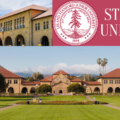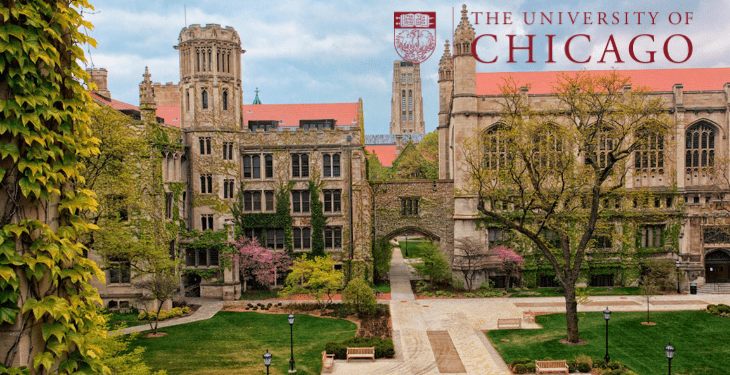The Oxford University

Oxford, England’s University of Oxford, is a collegiate research university. It is the oldest university in the English-speaking world and the second-oldest university still in operation, with teaching evidence dating back to 1096. It developed quickly after 1167, when Henry II restricted English understudies from going to the College of Paris. Some academics fled to Cambridge in the northeast after disputes between students and Oxford townspeople in 1209, where they established what is now the University of Cambridge. The two antiquated English colleges share numerous normal highlights and are mutually referred to as Oxbridge.
With over 25,000 students from over 150 nations, the University of Oxford is now a world-renowned institution. It is consistently ranked among the best universities in the world, and among its graduates are 26 British prime ministers, 28 Nobel Prize winners, and numerous other business, government, and academic leaders.
Each of the 38 constituent colleges at the University of Oxford is a self-governing organization with its own buildings, chapel, library, and dining hall. When a student is admitted to a university, they are placed in a college, where they typically live and eat for the duration of their studies. Colleges provide students with a sense of community and support, both of which are important aspects of student life.
The University of Oxford is home to a number of academic departments, faculties, and research institutes in addition to the colleges. The undergraduate and graduate courses offered by these departments cover a wide range of topics.
The acceptance rate at the University of Oxford, which is very selective, is typically around 17%. Candidates should have great scholarly records and major areas of strength for their proposal. The University of Oxford Admissions Test (UCAT), a standardized test designed to assess a student’s aptitude for university study, is another requirement for applicants.

The University of Oxford has a relatively high tuition fee. For the academic year 2022–2023, UK students will pay £9,250 annually, while international students will pay £25,000 annually. However, the university provides a number of bursaries and scholarships to assist students in paying for tuition.
The University of Oxford is a prestigious, challenging, and rewarding institution. Understudies who go to Oxford have the amazing chance to gain from a portion of the world’s leading researchers and specialists and to make deep rooted companions and associations. In the event that you are searching for a difficult and compensating scholarly experience, the College of Oxford is an extraordinary choice.
Here are a few extra realities about the College of Oxford:
- The Bodleian Library, one of the world’s oldest and largest libraries, is one of the university’s more than 600 libraries.
- The Ashmolean Museum, one of the world’s oldest museums, is one of the university’s more than 100 museums and art galleries.
- The college has delivered 28 Nobel Prize winners, more than any other college in the English-speaking world.
- More British prime ministers than any other university have been educated at the university.
- The Oxford Union, one of the most prestigious debate organizations in the world, is based at the university.
- With over 150 countries represented among its students, the University of Oxford is truly a global institution. The college is focused on variety and consideration, and it endeavors to establish an inviting and strong climate for all understudies.
Here is more extra data:
- Oxford, England’s University of Oxford, is a collegiate research university.
- It is the second-oldest university still in operation in the world and the oldest in the English-speaking world.
- After Henry II banned English students from attending the University of Paris in 1167, it expanded rapidly.
- Some academics fled to Cambridge in the northeast after disputes between students and Oxford townspeople in 1209, where they established what is now the University of Cambridge. The two antiquated English colleges share numerous normal highlights and are mutually referred to as Oxbridge.
- There are four divisions that make up the various academic faculties, departments, and institutes. Each division has its own head and elected board. They are the Humanities Division, the Sociology Division, the Numerical, Physical, and Life Sciences Division, and the Clinical Sciences Division.
- The College of Oxford is a “state funded college,” as in it gets some open cash from the public authority, yet it is a “confidential college,” as in it is completely self-overseeing and, in principle, could decide to turn out to be altogether private by dismissing public assets.
- There are 38 constituent colleges and a variety of academic departments at the university, which are divided into four divisions. Except for a small number of graduate students, all students live in college housing and are members of a college. At Oxford, courses, lectures, and laboratory work are provided by the university’s faculties and departments to supplement the weekly tutorials that take place in the colleges.
- The League of European Research Universities, the Coimbra Group, and Universitas 21 are just a few of the academic associations Oxford is a part of. Additionally, it is a founding member of the British research-intensive Russell Group.
- Oxford is one of the world’s best universities. In the 2023 QS World College Rankings, it was positioned second on the planet, and in the multiple Times Advanced Education World College Rankings, it was positioned fourth on the planet.
- Oxford has produced numerous notable alumni, including 27 Nobel Prize winners, 28 British prime ministers, and numerous notable figures in academia, government, business, and the arts.







